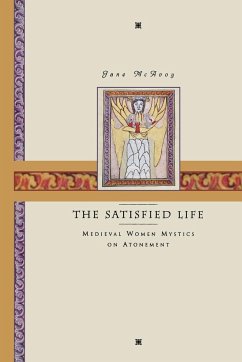Christianity centers on the life and death of Jesus as Christ. Often Christians focus on the importance of Christ's Sacrifice as the means of human salvation, and the faithful are encouraged to imitate this suffering through self-sacrifice and self-denial. More than a few Christians, particularly women, have found such encouragement to self-sacrifice to be a means for continuing oppression--men over women, colonizers over the colonized, the powerful over the powerless. In The Satisfied Life, Jane McAvoy constructs a feminist theology of atonement--or satisfaction for sin--that draws on the insights of six medieval women mystics: Julian of Norwich, Mechthild of Magdeburg, Hildegard of Bingen, Margery Kempe, Hadewijch of Brabant, and Catherine of Siena. These Christian writers reveal alternatives to a theology of oppression. Salvation, for them, means experiencing the death and resurrection of Christ not as life-denying, but as a life-affirming celebration of God's love for us through the sustaining love of Jesus.
Bitte wählen Sie Ihr Anliegen aus.
Rechnungen
Retourenschein anfordern
Bestellstatus
Storno








